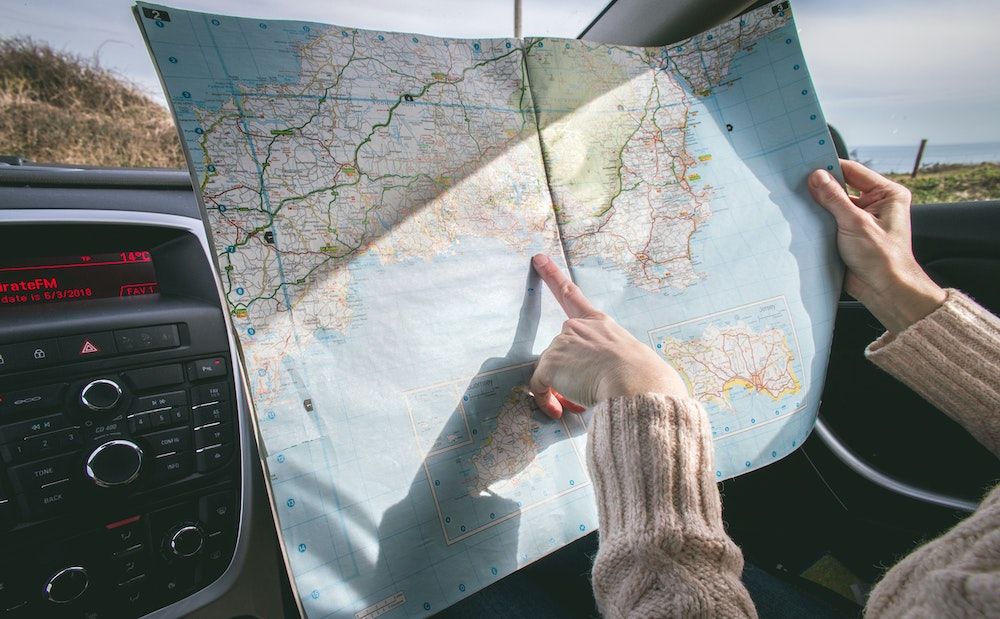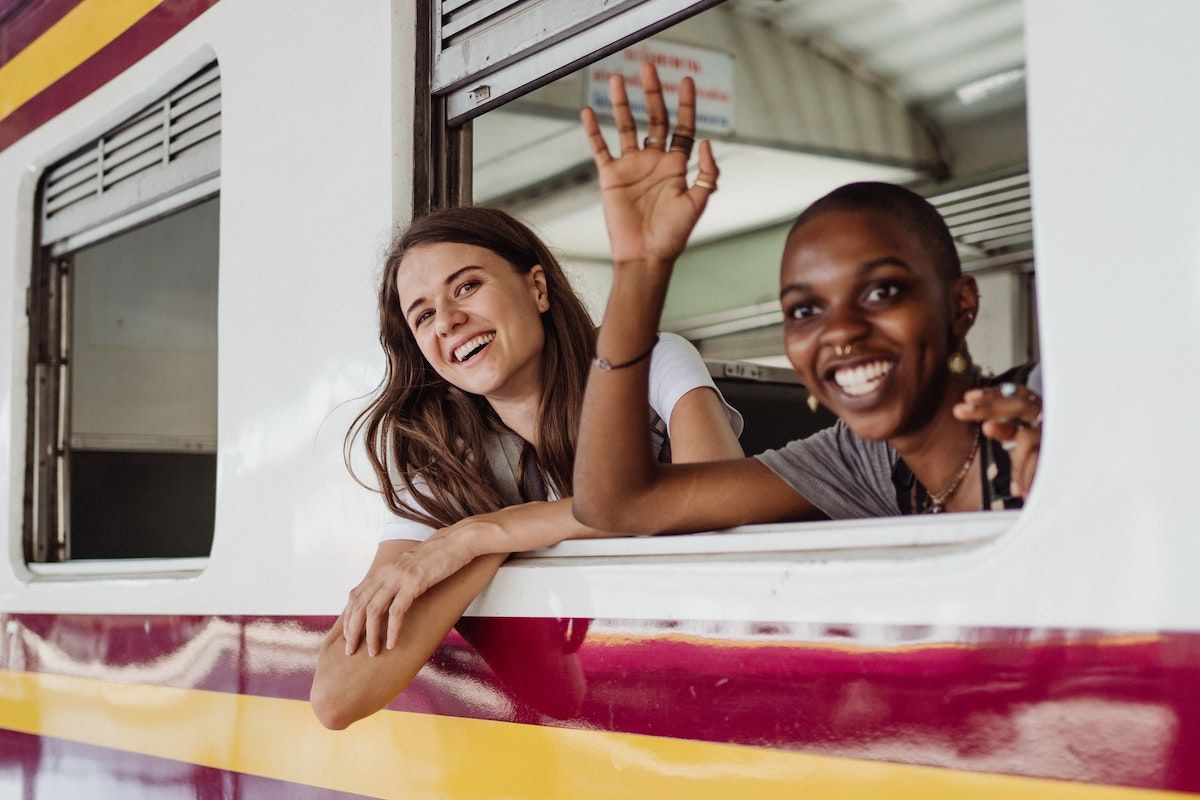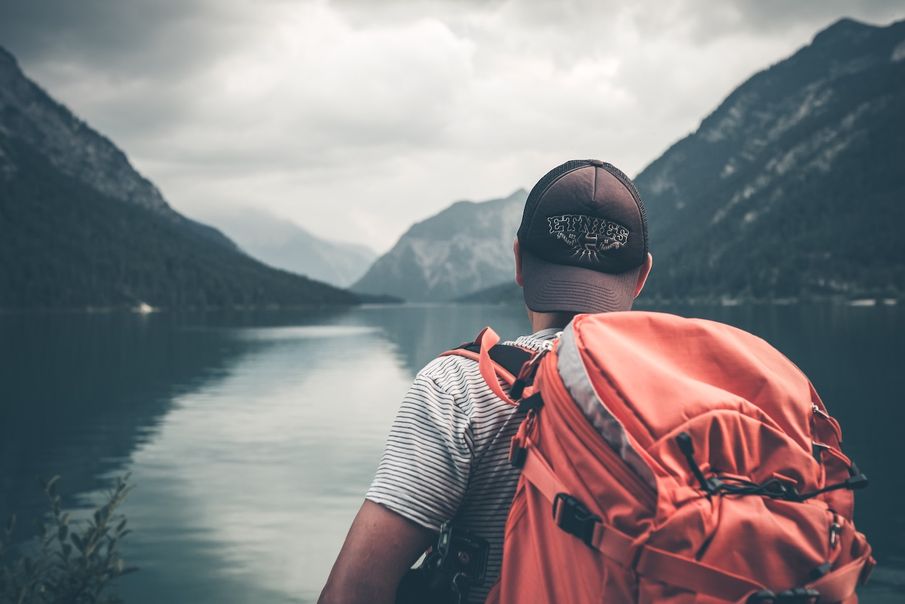Learn how to explore the world your way, and step out into the great unknown with confidence
There’s a world of opportunities out there, and for many people, the idea of travelling to far-flung places fills them with joy and excitement. Experiencing new things can help us expand our perspectives, as well as help us to break free of monotonous thought patterns. But that doesn’t mean that travel is without its bumps in the road. If you’re an introvert, travelling may be something that presents specific challenges, and the idea of those challenges could be enough to dampen your dreams.
But it doesn’t have to be that way. With the help of confidence coach Gemma Holmes, we’re exploring five ways that you can make travelling as an introvert a breeze.
Firstly, understand what it means to be an introvert
“Contrary to popular belief, being an introvert isn’t about being shy or about disliking people,” Gemma explains. “It’s about what leaves a person feeling drained, and where they find their energy topped up most easily.
“Extroverts tend to draw their energy from the people around them, whereas introverts may find long periods of interacting with others draining, and will value some time by themselves to replenish their energy reserves. As with many things in life, introversion to extroversion is a spectrum, and you may find where you sit on the spectrum changes over your lifetime.”
Do these traits line up with what you see in yourself? As Gemma explains, there aren’t any hard and fast rules when it comes to categorising someone as either an ‘introvert’ or ‘extrovert’, and you may see that you have traits that could fall on either side – you may even find that your reaction to social situations is different depending on what’s happening around you. That said, these personality groups are still a helpful foundation for understanding ourselves, so it’s worth spending some time learning about yourself, and how different scenarios affect you. This is your springboard to making plans that suit you.
Consider the location
“Being an introvert doesn’t necessarily mean you’re happiest in the mountains with no other humans for 50 miles (though it might!),” Gemma says. “Some introverts love the hustle and bustle of busy cities, as long as they don’t have to interact directly with too many others. People-watching can be a great source of joy for introverts.”
Gemma recommends exploring what brings you joy, and what sucks your energy, and then making plans around these features. She suggests casting your mind back to trips you’ve been on in the past. What was it about these trips that worked for you? And what about them didn’t work? Are there any patterns that you can pick up on and apply to your destination hunt? You may also want to consider the role your accommodation plays in all this.
“If you really enjoy conversing with people, but only when it’s a smaller group, consider more intimate excursions and smaller group accommodation options, such as agritourism or homestays,” Gemma suggests. “These can offer the chance to still connect with locals or other tourists and have stimulating conversations, without needing to network with a large group.”

Plan your itinerary
Taking some time beforehand to create an itinerary can make navigating travel as an introvert a whole lot easier, and gives you the opportunity to tune into, and respect, your needs.
“If you’re travelling solo, you can build a bespoke itinerary that really hits the spot,” says Gemma. “If you know that an element of your trip will require a lot of social interaction, plan in pockets of time for rest and quality time by yourself afterwards. Journaling and looking back over photography can be a great way to reflect and decompress after a busy day, without needing to spend the evening talking it over with others. Travels are the perfect time to start a gratitude diary, which will do wonders for your wellbeing when you continue the habit back home.”
Gemma also highlights that you don’t have to do certain activities, just because everyone else is doing them. Very busy tourist traps might be one person’s cup of tea but, for you, they may be overwhelming and stressful. So, skip out on the things you’d rather not do, and make more time for those you do.
Communicate with your travel companions
“If you’re travelling with others who get energy from different types of activities, don’t be afraid to share what you need from the experience, so you don’t end up coming home more drained than when you left,” Gemma says. “People are so familiar with what brings them joy that it can be hard to comprehend that it isn’t the same for others. Open communication is key in the planning stage! And, remember, itineraries shouldn’t have to be set in stone. If something feels uncomfortable or overwhelming, it’s OK to change your mind.”
Gemma also suggests dividing up tasks depending on what your strengths are. While you may not enjoy asking for directions, you may be great at planning, or at finding hidden gems. And your friend may have no problem asking for help when it’s needed, but would prefer not to spend time hunting for things to do. So, play to your strengths if you’re travelling in a group.

Beware of people-pleasing
If you’re looking for some space and alone time on a holiday, but someone you’re travelling with has different ideas, putting up some boundaries and advocating for what you need can be difficult. From there, you might find yourself falling into people-pleasing behaviours.
“Holiday time is precious, and if you get swept up in other people’s idea of a great trip, rather than listening to your needs and desires, you can lose everything there was to gain from a break,” Gemma says. “There are some simple cues you can give that indicate you want to be kept in peace, such as headphones or a book in hand. But it’s also OK to be direct and share with people that you’re using the current time for some self-reflection and quiet, so while you really appreciate their offer of connection, you’re going to choose to do something different.”
Sticking to your boundaries can feel uncomfortable if it’s not something that you do often, but it’s worth doing in order to get the most out of your time away.
“It’s not selfish to ensure your needs are met on your travels,” Gemma adds. “While waiting until your annual holiday to focus on your wellbeing isn’t a sustainable plan, for many busy people their travels are especially precious windows of time and you should feel able to fill it with things that boost your sense of wellbeing, rather than deplete it.”
Remember, making sure your needs are met is an important part of self-care. And, in this case, a key pillar in making memories you’ll treasure for a lifetime.


Comments